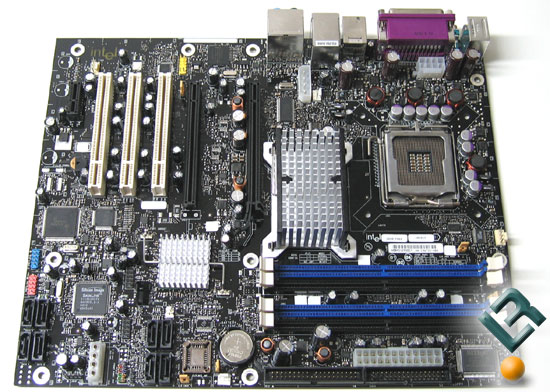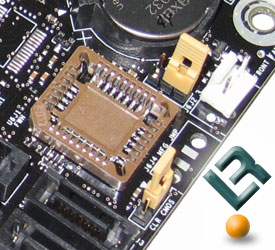Battle brews over unlocking PC secrets
Posted: Wed Apr 06, 2005 4:38 pm
As computer makers move to embed security features deep within PCs, a fight is erupting over a rarely noticed but crucial piece of system software.
The construction and installation of the BIOS--the basic input/output system that underlies all other applications--are closely guarded by a small number of PC makers, such as Dell, and speciality BIOS programming companies for hire.
Now, for the first time, some critics want to force the industry to abandon its hallmark secrecy. As the BIOS becomes more powerful, these critics argue, consumers must be allowed to freely develop their own alternatives to ensure that they keep control of their devices--and that means they need unfettered access to information.
"We need a free BIOS, because if we don't control the BIOS we don't control our computers," said Richard Stallman, president of the Free Software Foundation, a Boston-based organization dedicated to promoting the use, modification and redistribution of computer programs. "It puts me in an ethically compromised position to have a nonfree program in my machine."
The free-BIOS initiative comes at a time when the BIOS is undergoing the first major change in its history--a transition from software based on machine code to a new framework dubbed the Extensible Firmware Interface, or EFI. At the same time, efforts to secure PCs through hardware-based defenses are leading critics like Stallman to warn of a pending loss of consumer control over their devices.
The FSF has spearheaded numerous campaigns lobbying for greater consumer control over software. The group now plans to mount a campaign to open up specifications required to write BIOSes. The change that Stallman advocates would let people install, modify and redistribute BIOS software--although not necessarily free of charge. Significantly, that would allow people to circumvent some pending security enhancements, including digital-rights management features aiming to prevent unauthorized use of confidential corporate documents and other copyrighted materials.
If the operating system is the equivalent of a computer's brain, then the BIOS might be compared to the medula oblongata, the place where the brain meets the spine. The most primitive reflexes are governed here, well below the level of conscious thought. Typically, the BIOS announces its presence on start-up via flashing lights and whirring drives as it prepares a machine to receive higher-level instructions from its operating system.
Given the closely held nature of the BIOS business, Stallman and his foundation are likely to face resistance from hardware and BIOS makers. Many already contend that creating free BIOS software just for the sake of its being free has limited value to computer users. Executives at BIOS makers and chip giant Intel argue instead that today's tightly controlled model helps maintain PCs' security and stability, and fosters competition by protecting companies' intellectual property.
"Neither you nor I, as a user of a computer, has any reason to change the BIOS...unless it's broken," said Jonathan Joseph, chief executive of BIOS maker Insyde Software. "You're not going to type any faster in (Microsoft) Word because you have a new BIOS. The only thing you hide in BIOS is broken hardware."
Others say that a very good reason to keep the BIOS closely held is to defend against hackers.
"The one thing we have to worry about first is security. What do you think would happen if there was a virus that started reflashing," or rewriting, BIOS software, said Mike Goldgof, senior vice president of marketing at Phoenix Technologies. "If it ever happened on a large scale, I think a lot of PCs would start turning into bricks. What people take for granted...is the reliability of the (BIOS) firmware today."
Intel has proposed a middle ground of sorts by opensourcing technology it calls Tiano. Tiano is its implementation of a framework for creating a BIOS
http://news.com.com/Battle+brews+over+u ... g=nefd.pop
The construction and installation of the BIOS--the basic input/output system that underlies all other applications--are closely guarded by a small number of PC makers, such as Dell, and speciality BIOS programming companies for hire.
Now, for the first time, some critics want to force the industry to abandon its hallmark secrecy. As the BIOS becomes more powerful, these critics argue, consumers must be allowed to freely develop their own alternatives to ensure that they keep control of their devices--and that means they need unfettered access to information.
"We need a free BIOS, because if we don't control the BIOS we don't control our computers," said Richard Stallman, president of the Free Software Foundation, a Boston-based organization dedicated to promoting the use, modification and redistribution of computer programs. "It puts me in an ethically compromised position to have a nonfree program in my machine."
The free-BIOS initiative comes at a time when the BIOS is undergoing the first major change in its history--a transition from software based on machine code to a new framework dubbed the Extensible Firmware Interface, or EFI. At the same time, efforts to secure PCs through hardware-based defenses are leading critics like Stallman to warn of a pending loss of consumer control over their devices.
The FSF has spearheaded numerous campaigns lobbying for greater consumer control over software. The group now plans to mount a campaign to open up specifications required to write BIOSes. The change that Stallman advocates would let people install, modify and redistribute BIOS software--although not necessarily free of charge. Significantly, that would allow people to circumvent some pending security enhancements, including digital-rights management features aiming to prevent unauthorized use of confidential corporate documents and other copyrighted materials.
If the operating system is the equivalent of a computer's brain, then the BIOS might be compared to the medula oblongata, the place where the brain meets the spine. The most primitive reflexes are governed here, well below the level of conscious thought. Typically, the BIOS announces its presence on start-up via flashing lights and whirring drives as it prepares a machine to receive higher-level instructions from its operating system.
Given the closely held nature of the BIOS business, Stallman and his foundation are likely to face resistance from hardware and BIOS makers. Many already contend that creating free BIOS software just for the sake of its being free has limited value to computer users. Executives at BIOS makers and chip giant Intel argue instead that today's tightly controlled model helps maintain PCs' security and stability, and fosters competition by protecting companies' intellectual property.
"Neither you nor I, as a user of a computer, has any reason to change the BIOS...unless it's broken," said Jonathan Joseph, chief executive of BIOS maker Insyde Software. "You're not going to type any faster in (Microsoft) Word because you have a new BIOS. The only thing you hide in BIOS is broken hardware."
Others say that a very good reason to keep the BIOS closely held is to defend against hackers.
"The one thing we have to worry about first is security. What do you think would happen if there was a virus that started reflashing," or rewriting, BIOS software, said Mike Goldgof, senior vice president of marketing at Phoenix Technologies. "If it ever happened on a large scale, I think a lot of PCs would start turning into bricks. What people take for granted...is the reliability of the (BIOS) firmware today."
Intel has proposed a middle ground of sorts by opensourcing technology it calls Tiano. Tiano is its implementation of a framework for creating a BIOS
http://news.com.com/Battle+brews+over+u ... g=nefd.pop


